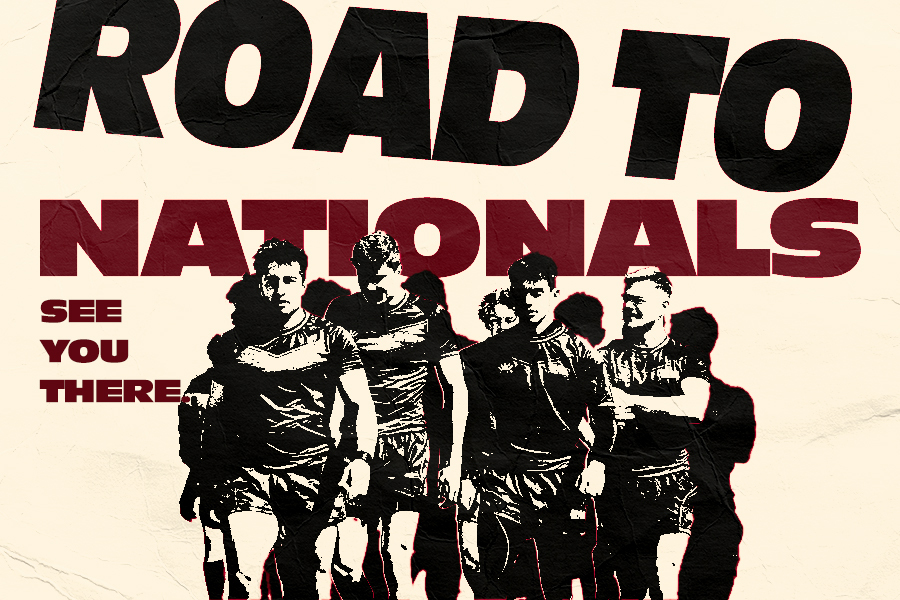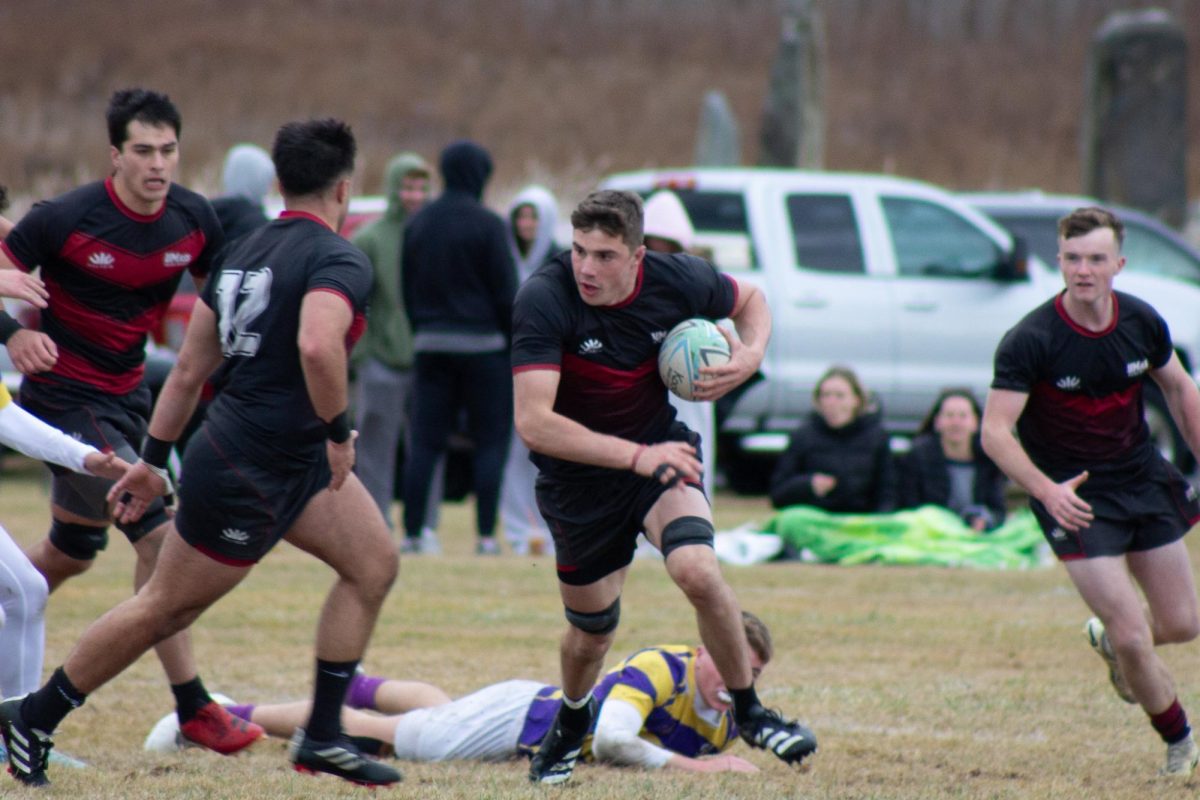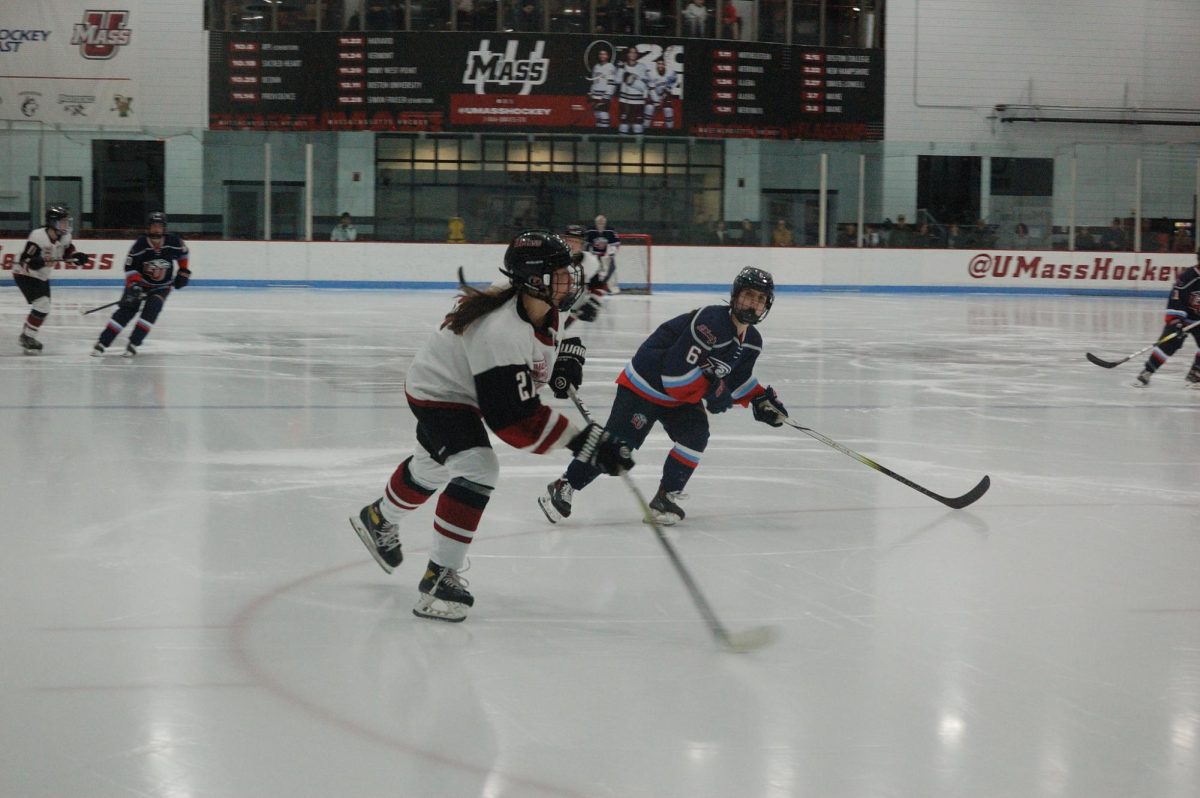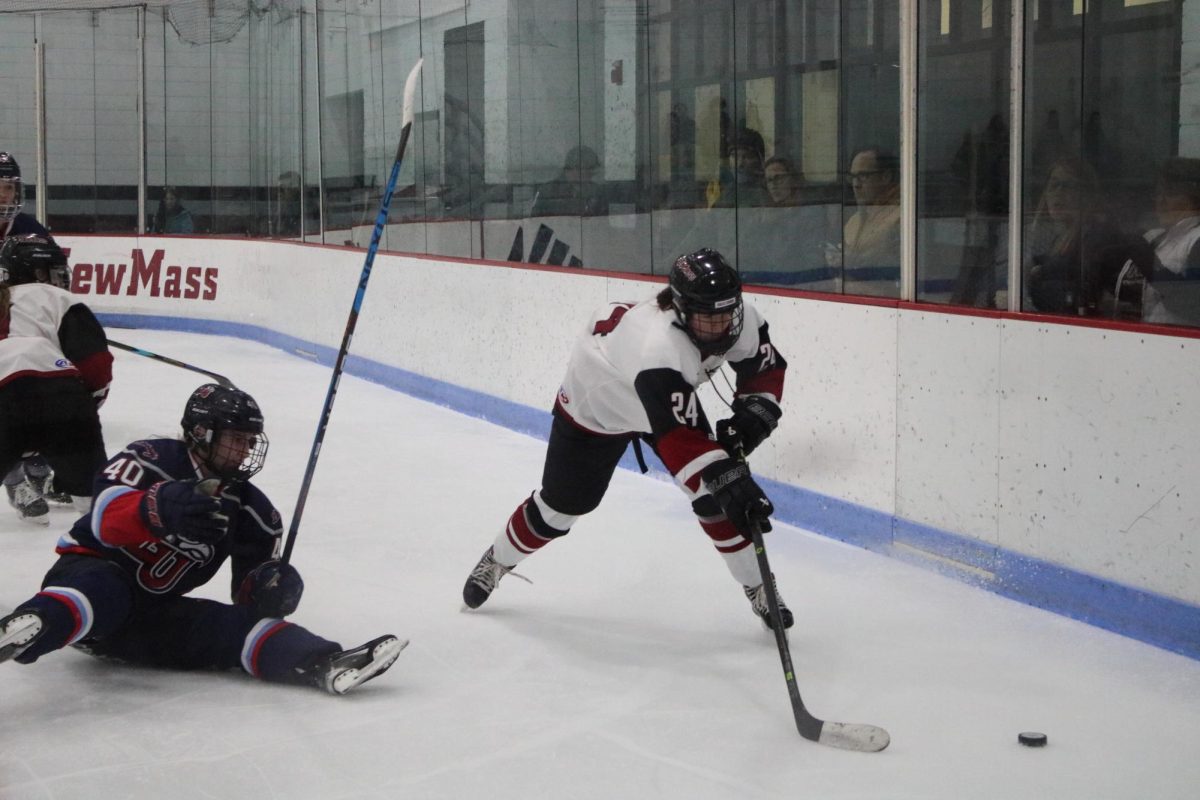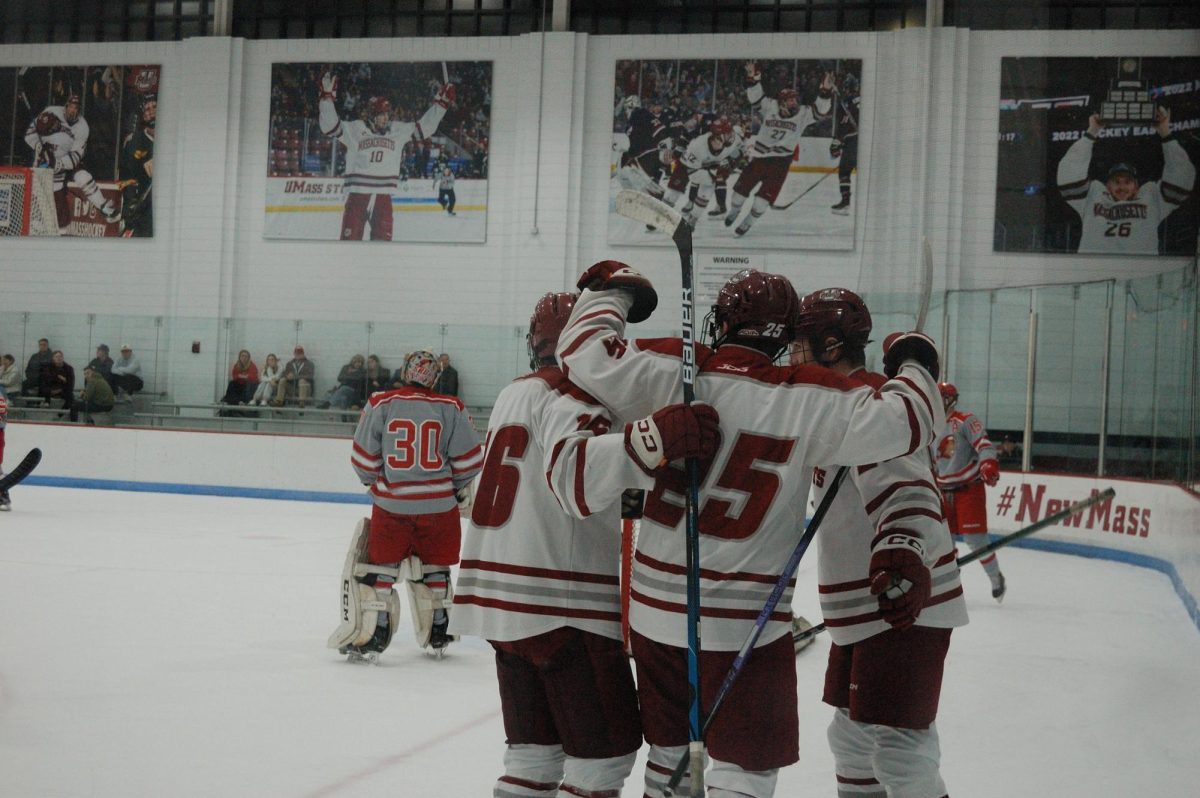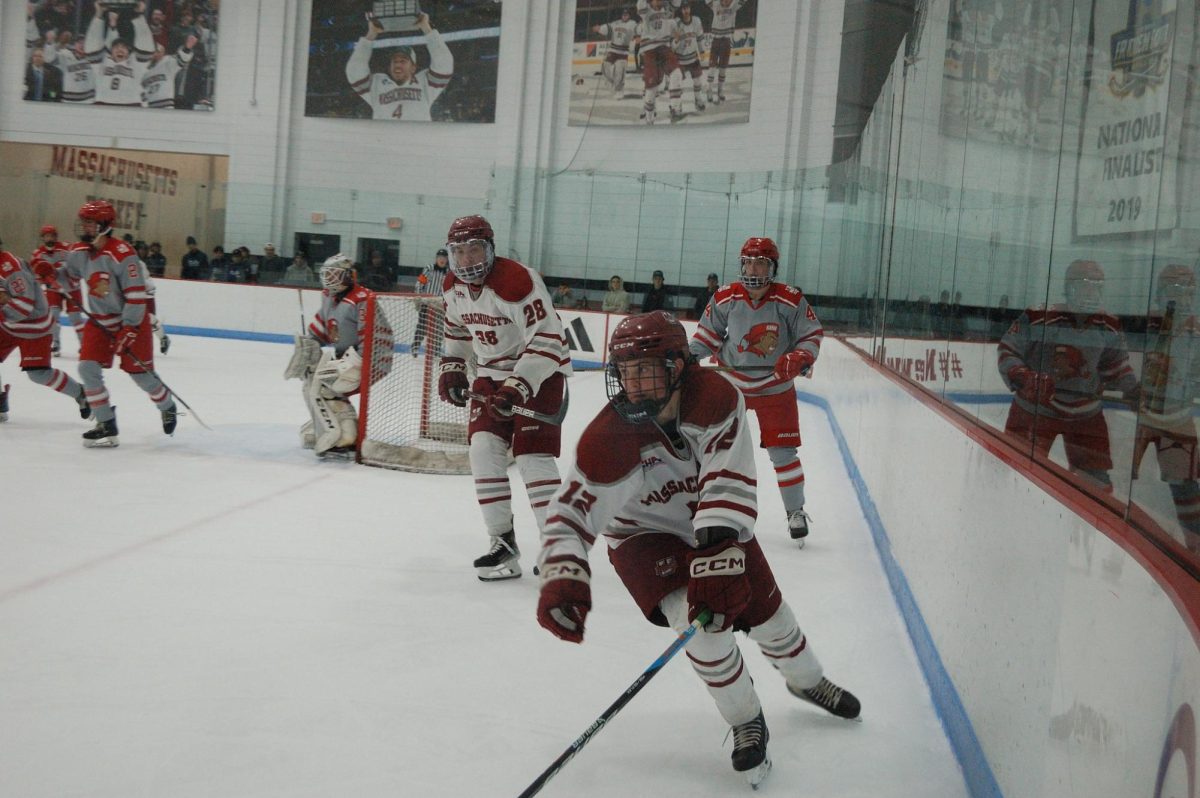Between the 22 and midfield line, the ball was sent down the left wing where UMass saw open space. The backs made progress and passed the ball down the line to Mathew Mahood, who dodged defenders.
Arthur Dehareng interrupted Mahood’s recall of his scoring drive against Boston College to say what Mahood wasn’t going to. Dehareng said his teammate “made a very athletic play.”
In the beginning of April, at UMass Rugby’s home tournament, the UMass Rugby Liberty Conference 7s tournament, stakes were high. UMass was facing longtime rival BC, a team who shook up UMass during the fall season.
In order to qualify for Nationals, a team must win one of the four spring tournaments, with each tournament consisting of five games. As soon as you win, you get an automatic bid to Washington, D.C.
Leading up to the home tournament, the rugby team had a group mentality at the forefront of every practice, cardio session, film breakdown: revenge.
The first time the group faced Boston College during the fall season, a weak mindset from the get go plagued the remainder of the game.
“We started the game, they smacked us right in the mouth and nobody was really there mentally, although it was a close score it never really felt that close, ” Dehareng explained. “We were in our own heads, mentally, we weren’t there.”
The bad blood between the Massachusetts teams goes well beyond the year, or season for that matter. The two schools seem to promote a competitive edge in every sport, even at the club level. The difference in round one versus round two this year was the start as Dehareng explained.
Ironically, Mahood, who scored the first points for UMass, is the player least familiar with the rivalry. Mahood is on exchange from Ireland, playing in the United States for the first time, not used to any long standing rivalry between the Eagles and his now temporary home at UMass. His high energy early score built momentum for the rest of the game, as UMass went on to win 42-12 in its rematch effort against BC.
Mahood has a rather outside perspective: his knowledge of the team is subjected to just the last few months. Even with less time spent playing UMass rugby, his knowledge of the game is a rich resource. He’s watched the positive transformation from the team in the mere months he’s worn a maroon and black uniform.
“The belief was not always there at the beginning but through victories, people started to realize the team we had, confidence grew and commitment grew which led to more success in the end,” Mahood said.
Success in the end has translated to a positive growth pattern for the team as a whole and after qualifying for Nations with the home tournament win, it’s crucial to the group that positivity remains.
There are two overarching leagues for collegiate rugby, with one club that UMass competes at. Club rugby is funded on its own, with little to no financial support from the school or university. Premiere college rugby is composed of athletes recruited internationally. While UMass plays in the club division, it competes against higher ranked teams that play premier.
The fall and spring are two completely different seasons. In the fall it’s “15s,” which means eight forwards, seven backs. UMass finished eighth in the country. Following Christmas break, it’s an entirely new season and nothing matters from the fall.
For the spring, it’s “7s” which is entirely different. Shorter games and seven on the field, three forwards and four backs. The spring game is more cardio dependent, with less physicality. More running, side stepping and agility on the field.
Even though the success of a nationally ranked fall season doesn’t carry over to the spring, the awareness does, fueling the belief that even more can be done in the spring when the game is played to UMass’ strength.
“We never said it out loud but it’s a feeling,” said Derek Tang.
“We all kind of know we are more skilled, better at 7s, know each other’s strengths and weaknesses,” Dehareng added.
A typical week for the group of rugby players consists of two practices and two cardio days, with Friday’s in the spring left for travel. The club atmosphere nourishes a constructive environment, as the sole reason for all players on the field is a want to, not a need.
Tang says players are consistently looking for extra cardio sessions, extra practice opportunities or film sessions. “UMass rugby is a friendship, it’s a bond between players,” Mahood said. “It’s the perfect mix between seriousness and having fun,” Dehareng continued.
Looking ahead at Nationals this weekend, following a win at the Beast of the East tournament, UMass wants to continue this upward trend. Last year, the maturation process came by way of dedication and team chemistry. With a lot of turnover in the last two years following the height of COVID-19, the team was composed of fresh talent.
“It’s only been up,” Tang said of the team’s growth. “The improvement we made from this year to last year, it’s only been up so I am excited to see where we are going this year.”
UMass will compete at Nationals in Washington, D.C, from April 28 to April 30.
Lulu Kesin can be reached at [email protected] and followed on Twitter @Lulukesin.

